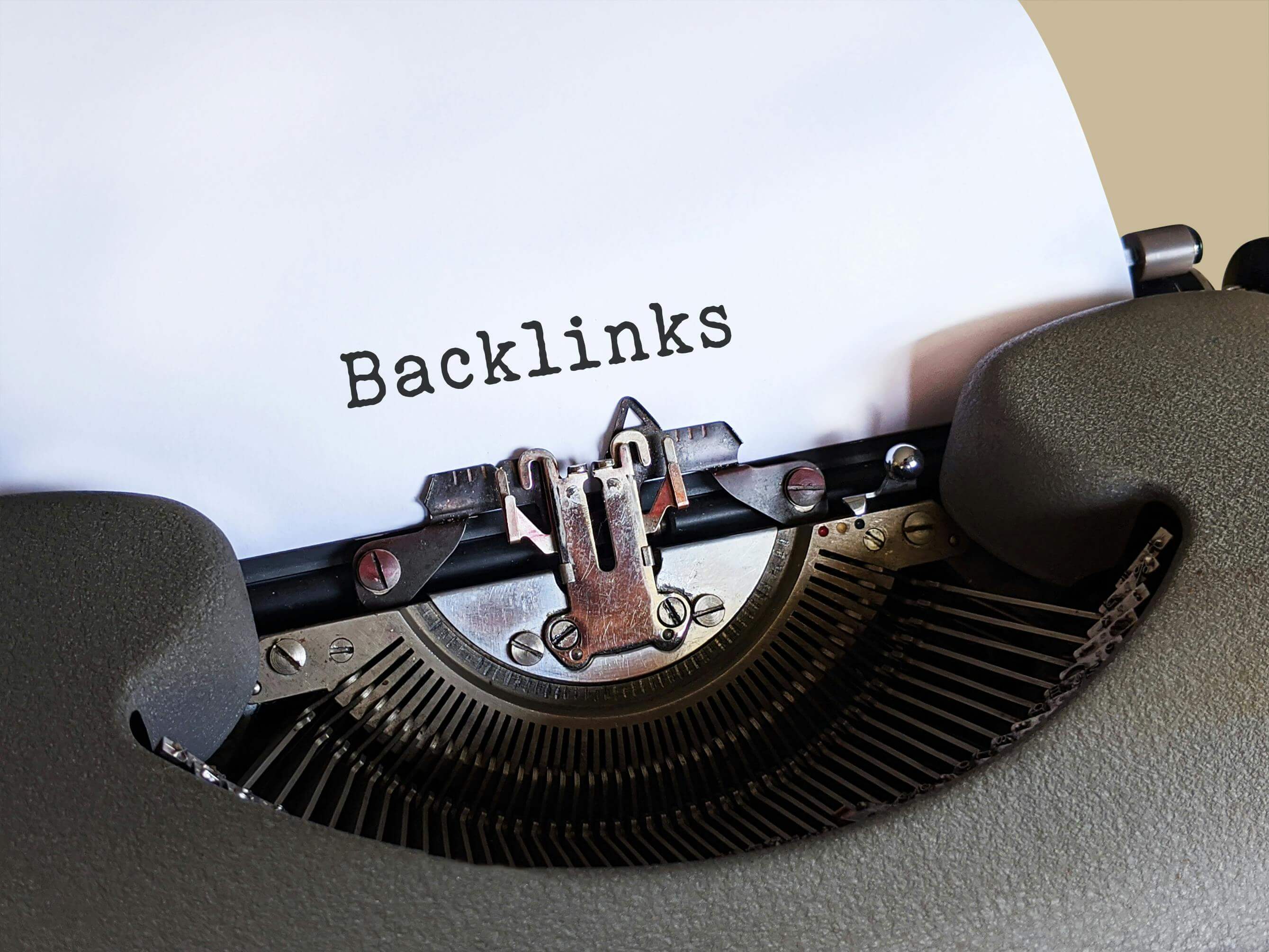In the world of SEO, backlinks play a crucial role in determining your website's ranking and authority. Marketers need to create strategies to acquire as many backlinks as possible as they are the foundation of organic traffic growth. Even though today’s search algorithms have become more sophisticated, backlinks remain a vital part of SEO.
If you're curious about how to best use backlinks for your website—or just want to get started—this article will guide you through:
What are backlinks and how they work
How and why backlinks are beneficial
Scenarios where backlinks are especially valuable
Website attributes that influence link quality
Tips and resources to win more, better backlinks
What Are Backlinks?
Backlinks, also known as inbound or incoming links, are hyperlinks that take users from one web page to another. They form the strongest referral network in online search and serve as votes of confidence, signalling to search engines that the content on the linked website is valuable and trustworthy.
Important Backlink Terminology
To fully understand how backlinks work, it's essential to familiarize yourself with some key terms:
Referring Domain:
The web domain where a backlink originates. For example, if this article links to another site, that site is the referring domain.
Referring Page:
The specific page where the backlink is found. For instance, the referring page for all backlinks within this article would be the page's URL.
Broken Backlink:
A backlink that points to a page that is inaccessible or no longer exists, often identified with the error code “404” (page not found).
Lost Backlink:
A previously existing backlink that no longer points to your content, such as when the referring domain webmaster changes the hyperlink URL.
Internal Backlink:
A backlink between two pages on the same domain.
Anchor Text:
The text on a referring page on which a link to your page/site is placed. For example, “SEO podcast” is the anchor text in a link.
PageRank:
One of the algorithms used by Google to rank web pages. This differs from search rank, which is the position of a page on a search results page.
Not All Backlinks Are Equal
When building a strong backlink profile, quality and relevance are key. Relevant backlinks from authoritative sites signal to Google that your page is worthy of attention. This associated equity is often referred to as “link juice.” To maximize the benefit of the link juice you’ve earned, aim for quality over quantity.
Google Search Advocate John Mueller highlighted this when he said, "One really good link from one website...that is, for us, a really important sign that we should treat this website as something that is relevant because it has that one link." In other words, the total number of backlinks to a page does not matter as much as their quality.
How Do Backlinks Add Value to Your Website?
Backlinks are crucial for several reasons:
Increased Organic Traffic
Backlinks remain one of the leading search ranking factors. All other considerations being equal, a page with relevant, authoritative backlinks is more likely to rank on page one of Google for its target queries. This means more visibility for your content and a higher likelihood of attracting organic traffic.
Increased Referral Traffic
Backlinks drive traffic from other websites to yours. When other sites link to your content, visitors from those sites can follow the link to your page, increasing your traffic. This not only boosts your site’s traffic but can also lead to higher engagement and conversions.
Credibility with Google
Google assesses a site’s content quality based on signals that indicate expertise, authority, and trustworthiness (E-A-T). Backlinks from reputable sites signal to Google that your page knows what it’s talking about and can be trusted. This improves your domain authority, making it easier for your content to rank higher in search results.
Credibility with Readers
Pages with links from established websites are more likely to be convincing and reliable to the people you want to reach. When readers see that reputable sites have linked to your content, they’re more likely to trust your information and view your site as an authority.
Faster Indexing Time
When you publish a page with internal backlinks from already-indexed pages, Google is faster to discover and crawl the new page. This helps ensure your new content is indexed and appears in search results more quickly.
Situations Where Backlinks Are Especially Valuable
While backlinks are beneficial in general, some scenarios make the investment in link building particularly worthwhile:
Unique Content
Expert interviews and proprietary research are examples of content that’s often original and difficult to replicate, making it a natural target for link building. Such content tends to attract backlinks because it provides unique value that other sites want to reference.
Non-Generic Keywords
Targeting specific keywords like “top 10 plant-based lipstick brands” is easier for link building than more generic terms like “best lipstick colors.” Not only is there less competition for backlinks with specific keywords, but these terms also often have high intent behind them, attracting a more engaged audience.
Low-Search Terms
Some keywords have a low number of monthly searches or are so specific that it's tough to find search history data for them. Many businesses ignore these opportunities, but targeting these keywords can help you acquire high-intent customers and dominate the search results for those queries. As you publish content to capture this traffic, you’ll likely earn relevant backlinks, signaling to Google and your readers that you’re an authority on the subject.
Attributes That Influence Link Quality:
Not all backlinks are created equal. Several factors determine the quality and value of a backlink:
Site Quality
Google tends to view referring domains with strong E-A-T (expertise, authority, and trustworthiness), good site structure, and positive user experience more favorably. Backlinks from these sites are preferable to those from similar websites without those qualities.
Site Relevance
The proximity and relevance of a referring domain/page to the target page on your website make a huge difference in terms of backlink quality. For example, Google is likely to value links between two digital marketing sites more than links between a marketing site and a pet adoption site.
Anchor Text
Google looks at anchor text to better understand what a page is about and what a given link is indicating. The more direct and relevant the anchor text is to the topic it links to, the more context Google has to rank it appropriately for relevant queries.
Link Type
Follow links tell Google’s crawlers to “follow” the link and crawl the target page. These are the most valuable types of backlinks for passing link equity. Nofollow links use a tag to cut off link juice, although Google treats this attribute as a hint rather than a directive, meaning it may choose to pass link equity anyway. UGC (user-generated content) and sponsored tags tell Google that a link is either outside a site’s control or paid for.
Three Under-Utilized Link-Building Tactics
Link building is crucial for SEO success. Here are some best practices to earn and retain the best backlinks:
Nurture Relationships
Treat link building like a good sales rep treats client relationships. Take an interest in what others do, give more than you take, and add a personal touch. Building genuine relationships makes it easier to request backlinks.
Monitor and Resolve Broken Backlinks
Backlink monitoring is vital. Use tools like Google Search Console, SEO Spider from Screaming Frog, and Semrush to stay on top of your links and ensure the pages they point to are active and accessible. Fixing broken backlinks ensures you don’t lose valuable link equity.
Explore Niche Sites
Niche sites cater to specific topics and audiences, providing opportunities for steady backlinks. Other opportunities include social media profiles, directory sites like G2 and Yelp, and community sites like Reddit and Quora. These platforms, though often providing nofollow links, can still drive traffic to your site.
Using PressPulse AI for Backlinks
For busy professionals, finding time for active link-building can be challenging. That’s where PressPulse AI comes in. PressPulse uses AI to handle the heavy lifting of finding and building the perfect backlinks for you.
Imagine having AI sift through potential backlink opportunities, identify the most relevant ones, and even draft your pitches. It’s like having a virtual assistant dedicated to boosting your SEO. PressPulse AI ensures your backlinks are timely, relevant, and highly effective.



